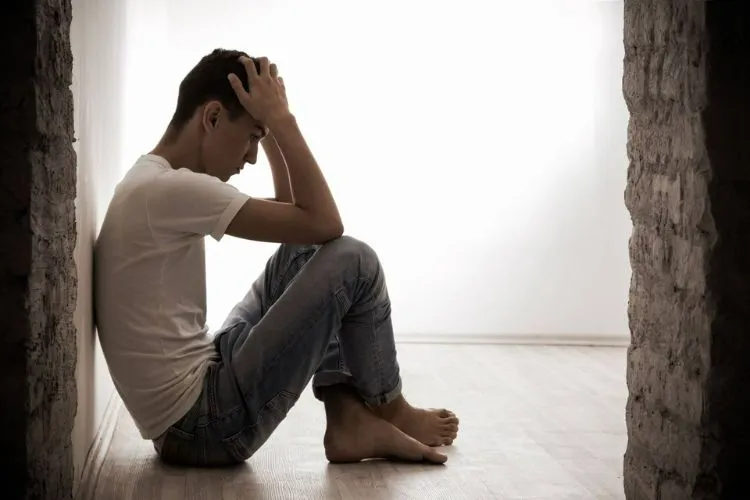“Your mind will answer most questions if you learn to relax and wait for the answer.” —William S. Burroughs What is Anxiety? Anxiety might seem like our neurons are firing messages at thousands of miles per hour, making it incredibly difficult to make a clear, educated decision in a situation of need. As a result, it is critical that we listen to our bodies when they try to tell us anything through physical and psychological symptoms. It is critical to pay attention to the smallest things in order to repair and process the repressed energy in our minds and body. Anxiety is our body’s natural reaction to stress. It is nervousness or fear of what is to come. Every human being, irrespective of what they identify as goes through bouts of anxiety and is exposed to anxiety to a certain extent at least once in their lifetime. It is important to know that culture, along with many other factors, shapes the outcome of how an individual perceives their realities and what level of emotional regulation they have up their sleeves. By and large, a series of amalgamations of genetics, brain chemistry, environmental stress, or drug withdrawal and misuse, results in the manifestation of anxiety. It becomes alarming and problematic if it persists for at least 6 months and interferes with our daily functioning, it is suggested to look out for help, as it may indicate that one is suffering from an anxiety disorder. Anxiety disorders are very common and can affect anyone.
Symptoms of Anxiety
It is important to note that there are common symptoms of anxiety as they are not gender-specific. However, the way these are manifested and actualized may be different because of the cultural influences on men and women. These are:
- Chest pain, tightness, or pressure along with an underlying uneasy feeling throughout the body, especially in the chest. Feelings of panic, doom, or being in danger.
- Having difficulty falling or staying asleep
- A cold, sweaty, or tingly feeling in the hands and feet.
- Heart palpitations
- Dry mouth
- Nausea
- Tense muscles
- Inability to concentrate and stay focused on completing a task.
- Obsessive worrying about or avoidance of feared objects, places, or people
Gender Differences in Anxiety
According to the expert psychologist of the American Psychological Association, at the most basic level of heterogeneous gender distinction, women are more likely than men to be diagnosed with an anxiety disorder.
As women have been sensitized towards understanding their emotions and expressing them fully as per their socialization, it is much easier for them to showcase a range of emotions. It is also observed widely, that women are more relied on their social support than men and seek out professional levels of support, which is completely different from the case of men. Anxiety disorders drive men to seek mental health care more than women, probably because anxiety is more consistent with a feminine gender role than a conventional masculine gender role. On the other hand, men are socialized differently and because of these social constraints, they have limited expressive repertoire. This does not imply that men are less anxious. The anxiety they experience is usually work-related.
Culture has played a crucial role in determining the level of anxiety based on what influences have been passed on to an individual. No matter what age or what phase of life they are in, they feel one step closer to reaching out to a professional for help. However, it is noted that layers of gender and power hinder the expression of anxiety in modern culture.
Performance anxiety solutions for men
In our close relationships, most of us experience some of the strongest emotional responses. The emotional vulnerability inherent in those connections puts men under pressure to be the most guarded in the relationships in which they have the strongest sentiments. Not only it is a lot of work, but suppressing any symptoms of sensitivity makes it extremely difficult for men to enjoy the emotional intimacy with people that they desire. When men go through performance anxiety sensations, their bodies may generate more intense stress hormones like adrenaline, making it more difficult to relax and enjoy sexual activity. This can cause erectile dysfunction for them, making sexual activity more difficult and less pleasurable.
Getting relief from performance anxiety could be the biggest game changer for experiencing the libidinal energy in full force. Let’s look into a few ways it can be dealt with!
- Therapy: Cognitive behavioral therapy or sex therapy to work on intimacy and sexual performance, inculcation of mindfulness, and targeting of negative thoughts to convert them into positive and life-enhancing ones.
- Erectile Dysfunction Medications: If anxiety comes from being self-conscious, erectile dysfunction medications suggested by the physicians would be most effective.
In a romantic relationship or otherwise, with a man who may be suffering from anxiety, there is a need to hold out a hand of non-judgment, as being supportive of how your partner walks through their journey of healing is the best thing that one can do for them as well as one’s own mental health.
Regardless of gender differences, anxiety can be debilitating and hamper your peace of mind. Seek an online therapist from www.ganeshaspeaks.com to understand and manage your anxiety better.



